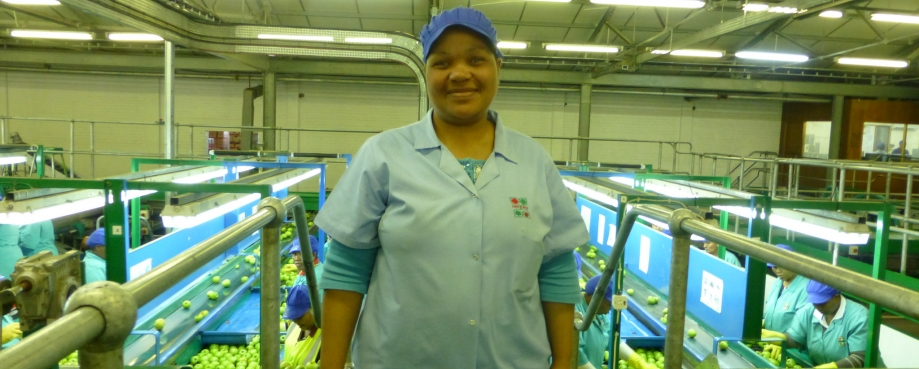
The Western Cape is characterised by stunning views of cloud-capped mountains, sweeping valleys lined with vineyards, fruit and flower farms and dotted with gleaming white Cape Dutch-style villages and towns.
It is also characterised by a complex and highly sensitive history of racial demarcation. In the Western Cape, people are from diverse heritages, speak diverse languages and have diverse cultures. Despite the egalitarian nature of modern, post-apartheid South Africa, vestiges of discrimination can – often subconsciously – remain. When socio-economic and gender inequalities are added into the mix, it can become pretty volatile. Indeed in the last year or two tensions have been known to boil over into sometimes violent strikes in different industries.
Since 2011, ETI partner organisation WIETA has been running an innovative kind of training programme to help businesses tackle these sensitive issues in agricultural workplaces across the Western Cape and beyond. First piloted on flower farms in Kenya and the UK by ETI, WIETA has adapted it for the South African context and is now coming to the end of the three year, Comic Relief-funded programme.
Tabitha[1], a supervisor at a fruit packing house, attended the one-day training session to raise awareness of workers' rights, discrimination and sexual harassment, in September last year. Workers and managers also went through the highly interactive and informative training process. They learned about South African labour law, what constitutes sexual harassment and discrimination and what you can do if you feel you have a grievance.
"I didn't know about my rights before the training," Tabitha says, "but since that day I know my rights."
She learned that she had the right to say how she felt when one of her managers shouted rudely at her in front of the workers she supervises. The manager had also been through the training and apologised, which Tabitha says made her feel more respected.
After all three groups have been trained, a joint session is held to discuss issues that have emerged from the training and together they come up with an action plan to address these issues. These can make for very difficult and challenging conversations, but they have also helped resolved rumbling, underlying tensions. Managers have to hear some hard truths about how their workers feel about their conditions and treatment, but by addressing these they say they have been able to clear the air and improve worker morale.
During the training at Tabitha's workplace, one of the issues raised was the fact that many workers and supervisors were on seasonal contracts even though they worked almost as many hours as those on permanent contracts. Management listened and put 88 such staff – including Tabitha – onto permanent contracts.
"Now that I am on a permanent contract," says Tabitha, "I can pay for school fees, transport and better food for my three kids."
At an end-of-programme reflection session this week, managers and owners of fruit and flower farms, fruit packing houses, vineyards and wine cellars joined the WIETA project team, trainers and assessors to look back at how the programme has gone and consider what impact it has had on their work places.
They overwhelmingly agreed that since the training, communication – both up and down the line and also across the workforce – has improved enormously. They said the practical tools and policy templates, and the follow-up support that WIETA provided were particularly helpful.
One farmer, had an especially challenging session with his supervisors and workers after their training 18 months ago. Despite some short term adjustment problems amongst his staff, the business benefits he is now experiencing have made him one of the programme's strongest advocates.
"It has eliminated conflict between workers," he said, "and that has meant better communication, better morale and better productivity. I thank Comic Relief for funding the programme, it has had a really positive effect on my farm."
Read about ETI’s Equal treatment of workers training programme
[1] Not her real name
